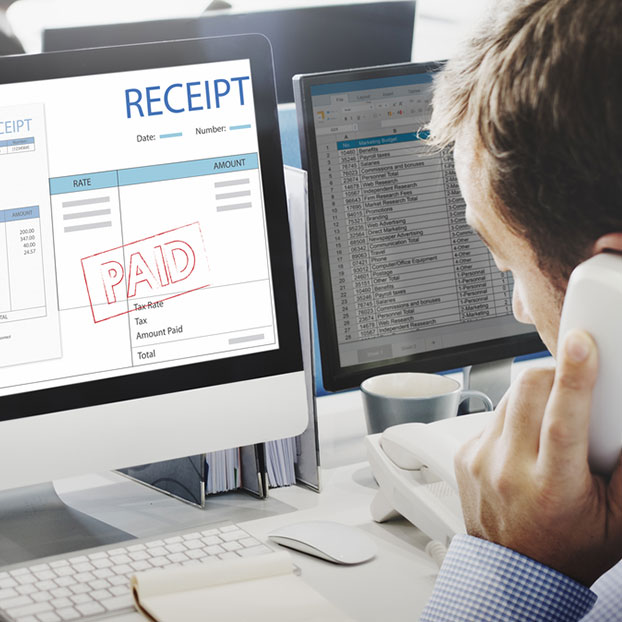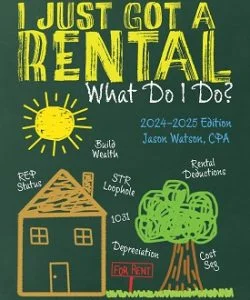
Business Advisory
Business Advisory Services
Everything you need to help you launch your new business entity from business entity selection to multiple-entity business structures.

Everything you need to help you launch your new business entity from business entity selection to multiple-entity business structures.

Designed for rental property owners where WCG CPAs & Advisors supports you as your real estate CPA.

Everything you need from tax return preparation for your small business to your rental to your corporation is here.

Fermentum aliquet amet
tristique purus vitae. Adipiscing
id rhoncus quisque mauris amet.
Table Of Contents
 By Jason Watson, CPA
By Jason Watson, CPA
Posted Monday, August 5 2024
The question comes up often where a real estate investor does not want to mess with rental property depreciation for whatever reason and decides against deducting it on their tax returns. The most common reasoning is- why depreciate my rental property since I cannot deduct the rental loss on my tax returns?
This will bite you because according to IRS Publication 544 Sales and Other Dispositions of Assets–
The greater of depreciation allowed or allowable (to any person who held the property if the depreciation was used in figuring its adjusted basis in your hands) is generally the amount to use in figuring the part of the gain to be reported as ordinary income. If you can show that the deduction allowed for any tax year was less than the amount allowable, the lesser figure will be the depreciation adjustment for figuring additional depreciation.
What does this mean? Generally, if you don’t deduct rental property depreciation, when you sell the property, you will be required to recapture depreciation as if you deducted it. Yuck. However, if you didn’t deduct rental depreciation on prior tax returns, you can easily fix it with a Form 3115 Application for Change in Accounting Method and Section 481(a) adjustment.
Allowed is what you claimed and deducted. Allowable is what you should have claimed and deducted. Keep in mind that just because depreciation deduction does not immediately help you because of passive loss limitations, you will benefit when either a) you sell property or b) have rental income (profits) in the future. As such, you should always (which is a big word) depreciate your rental property. We have a section on selling your rental property on page xx.
In related news, Canada allows rental property owners to opt out of depreciation entirely. Who knew? Makes sense when most real estate appreciates and doesn’t depreciate, right? Here is another gee whiz consideration- Canada calls it Capital Cost Allowance (CCA).
 This KB article is an excerpt from our 320+ page book (some picture pages, but no scatch and sniff) which was released September 30, 2024, and is available in paperback from Amazon, as an eBook for Kindle and as a PDF from ClickBank. We used to publish with iTunes and Nook, but keeping up with two different formats was brutal. You can cruise through these KB articles online, click on the fancy buttons below or visit our webpage which provides more information.
This KB article is an excerpt from our 320+ page book (some picture pages, but no scatch and sniff) which was released September 30, 2024, and is available in paperback from Amazon, as an eBook for Kindle and as a PDF from ClickBank. We used to publish with iTunes and Nook, but keeping up with two different formats was brutal. You can cruise through these KB articles online, click on the fancy buttons below or visit our webpage which provides more information.
Please use the form below to tell us a little about yourself, and what you have going on with your investments and wealth-building objectives. WCG CPAs & Advisors are real estate CPAs, tax strategists and rental property consultants, and we look forward to talking to you!
The tax advisors and business consultants at WCG are not salespeople; we are not putting lipstick on a pig expecting you to love it. Our job remains being professionally detached, giving you information and letting you decide within our ethical guidelines and your risk profiles.
We see far too many crazy schemes and half-baked ideas from attorneys and wealth managers. In some cases, they are good ideas. In most cases, all the entities, layering and mixed ownership is only the illusion of precision. As Chris Rock says, just because you can drive your car with your feet doesn’t make it a good idea. In other words, let’s not automatically convert “you can” into “you must.” Yes, it is fun to brag about how complicated your world is at cocktail parties, but let’s not unnecessarily complicate it for the bragging rights.
We typically schedule a 20-minute complimentary quick chat with one of our Partners or Senior Tax Professionals to determine if we are a good fit for each other, and how an engagement with our team looks. Tax returns only? Business advisory? Tax prep, and more importantly tax strategy and planning?
Should we need to schedule an additional consultation, our fee is $250 for 40 minutes. Fun! If we decide to press forward with a Business Advisory or Tax Patrol Services engagement, we will credit the consultation fee towards those services.

Taxes are complicated. We make them simple. Get in touch with a pro here at WCG!

Everything you need to help you launch your new business entity from business entity selection to multiple-entity business structures.

Designed for rental property owners where WCG CPAs & Advisors supports you as your real estate CPA.

Everything you need from tax return preparation for your small business to your rental to your corporation is here.

Fermentum aliquet amet
tristique purus vitae. Adipiscing
id rhoncus quisque mauris amet.
